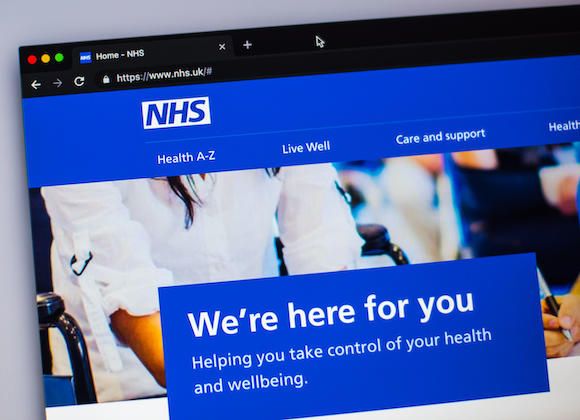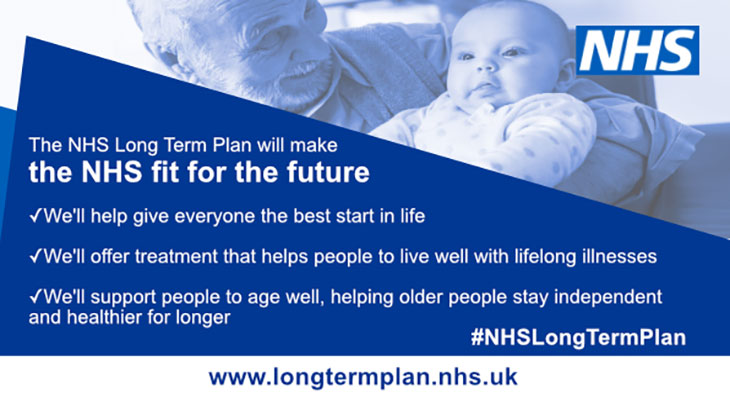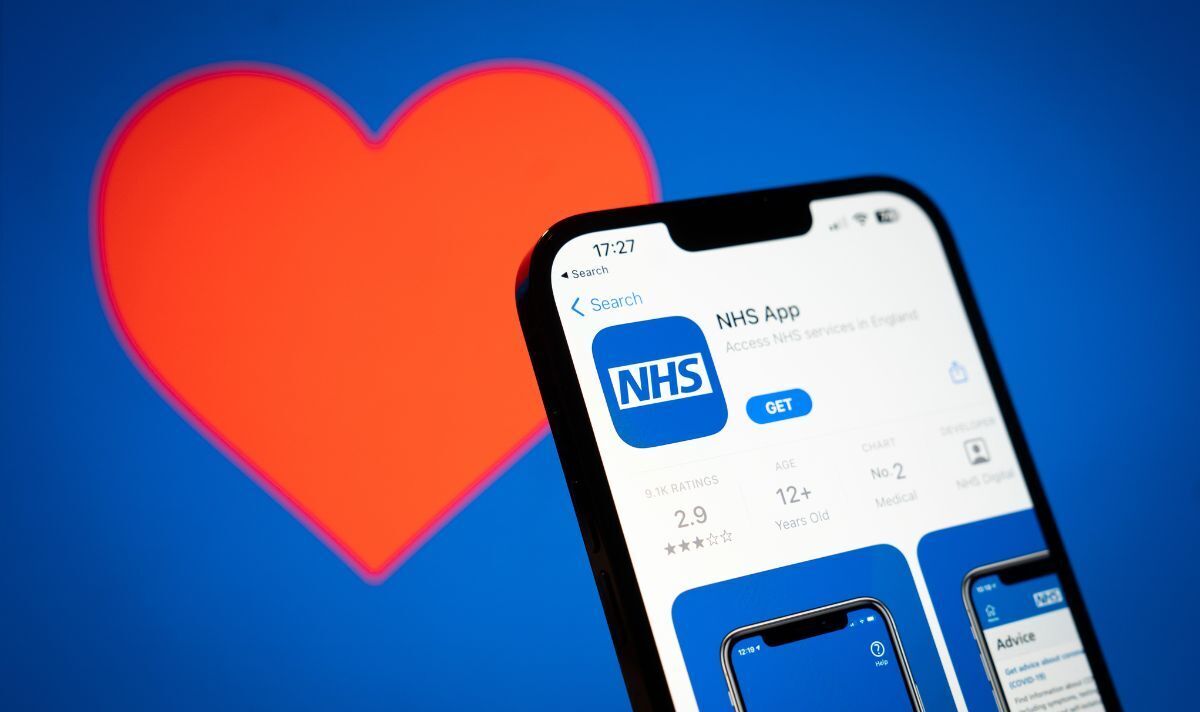By Erika Koutroumpa,
The NHS was a product of the end of the second world war and is considered a pioneer healthcare system. Its innovative approach of providing universal healthcare coverage became the basis for healthcare systems of other countries across the globe. However, due to serious neglect by the policymakers and severe underfunding, the once model organization has fallen into a state of chaos, prone to understaffing and underfunding. Technology has played an important role in revolutionizing other parts of our everyday lives, so how could it be used to improve public medicine in the UK?
At home diagnostics have existed since the beginning of the millennium, however only now thanks to the covid pandemic they have started being more widely used. After years of development, modern portable diagnostic devices are a fraction of the previous cost and easier in transport. Thanks to those, the NHS can provide information needed for patient care especially those that cannot attend hospital for logistic reasons, such as elderly, chronic illness patients and amputees.
Another important part of NHS reforms is predicted to be the self-monitoring of patients. According to recent data, the U.K. population that owns smartphones tallies up to 78%, a significant increase compared to 17% in 2008. The NHS has already curated the “NHS app library”, which includes NHS approved and NHS compatible apps, curated to guide GPS and patients alike. The system took it one step further by creating applications such as the NHS app, allowing patients since 2021 to access their individual care plan and it is aimed that by 2024 one feature to be included will be online General Practitioner (GP) appointments.

Remote care is a sector which thanks to the COVID pandemic has blossomed quicker than expected. It is estimated that 45 million pounds were spent in the years 2014-2019 to support online consultations, following the example set by private health conglomerates, with fee or insurance-based consultations being available even before COVID. As of now, patients can arrange for online consultations with their GP by booking a time slot via the NHS app or website, often requiring an accompanying questionnaire form. Then, they might receive a response from the medical centre through an electronic message, video or phone call, or a face-to-face appointment if needed. This change has led to easier and faster access to health services nationwide, and while it does not reduce time needed to address concerns it does show significant results in reducing referrals. According to the data presented by the NHS long-term plan of 2019, it is estimated that online consultations save 30 million pounds in trips to hospitals and 1 billion pounds per year in new expenditure.
Another important feature thanks to the NHS app is tech-supported self-management. Through phone applications, the state of the patient is monitored at any time, anywhere, managing to find any possible patterns of the disease and even having the capability to spot symptoms outbreak. Collecting information this way does not only help improve short consultations by producing more data, but also empowers patients to better manage and understand their ailment. Hence, this does not only help the medical experts, but also the person being treated, enhancing behavioural and clinical outcomes.
Genomic sequencing is perhaps one of the most exciting developments of medical technology in the 21stcentury and is of primary interest in the NHS. In 2003, the UK established with other economic superpowers the International Human Genome Sequencing Consortium, which managed after an investment of 2 billion GBP to retrieve the whole base sequence of the human DNA. Thanks to this development, the human genome can be sequenced with the price of 1000 GBP, playing a significant role in diagnosing specific forms of cancer and multiple rare diseases. Then, based on the results, the best suited treatment option for the specific case can be determined, also known as ‘precision medicine’. In 2018, the NHS Genomic Medicine Service was established, aiming to sequence 5 million genomes over the next half decade to provide more personalized medicine with quicker diagnosis. However, the number of individuals benefitting from the use of this technology is significantly lower compared to other procedures, leading pharmaceutical companies to apply high tariffs for it and making it a dubious investment profit wise for a national healthcare system.
Lastly, AI learning is a technological sector which can find application in more ways than one. This technology can help with regulating surgery and appointment scheduling, correlating times where expert doctors can come together and perform invasive procedures, thus making it easier to quickly tackle malignancies. Other than streamlining scheduling systems, it can play a crucial role in disease detection, shifting with ease through large, unorganized data sets of previous case studies and correlating patient symptoms and imaging to produce diagnosis. Another way it can come into play is by displaying protocol to doctors, monitoring for deviations, implications or benefits on the outcome, and updating the protocol if needed based on the moves made by the clinicians. Although there are Chief Information officers in place, big gaps in NHS datasets remain, making the technology not routinely available nationwide.

The Long-term NHS plan of 2019 is a plan of action on how to improve NHS standard of care, includes a great variety of propositions, including some that are relevant to the use of technology in the public health sector. One of the main goals is to boost out of hospital care and to reduce emergency hospital services as much as possible, including reforms in emergency hospital care. Some other major targets include more personalized care, helping the digitally enabled primary care to go mainstream and the prevention of health inequalities, and most importantly, the reform of the current service changes to accommodate the results the technological advancements will yield.
Nevertheless, there are still some major issues that prevent digital technology advancements from yielding optimum results. Despite the high number of smartphone users, 12 million in the UK lack basic digital skills, hence there is trouble with getting the entirety of the population on board with the tech developments. To add fuel to the fire, in a 2018 survey by the King’s fund, more than half of the respondents are willing to share biometric data with the NHS via apps, public attitudes regarding data usage are mixed and current privacy policy places significant restrictions. What is more, in the same report, 63% of responders were willing to have video consultations on minor ailments, out of which 43% also agreeing on their use for immediate or emergency medicine. While there is not much difference in the answers between age groups, there is a more significant divergence of opinion between tax brackets, with those of a household income lower than 25,000 GBP per annum being against. GPs seem to be those most vehemently opposed to his idea, asserting that the golden standard of care lies in face-to-face consultations. What is more, the system is inherently resisting innovation since it is more driven towards adopting short-term solutions rather than long-term with higher result yield. Most money currently is being spent on research rather than adoption of innovation, which is the exact opposite from what is happening with the system’s private competitors. More specifically, UK’s budget for innovation in the years 2013-2018 was 50 million GBP, less than 0.1% of available resources, whereas private companies allocate 25% of towards innovation.
To conclude, the NHS still has high potential to improve the quality of care via technological advancements. However, the data in the system is not evenly distributed, use of AI is still unclear and there is lack of sufficient funds. Attempts to reach this goal are taking place, though there is a lot to be done, from educating citizens to reorganizing the inner structure of the system. The most important thing though is rather to change existing standpoints and implementing existing innovation.
References
- Online consultations. nhs.uk. Available here
- What will new technology mean for the NHS and its patients?”, Sophia Castle-Clarke, The Health Foundation, the Institute for Fiscal Studies, The King’s Fund and the Nuffield Trust, 2018
-
Adoption and spread of Innovation in the NHS, Ben Collins. kingsfund.org.uk. Available here
-
NHS Long Term Plan, June 2019
-
“Scaling up innovation in the NHS requires action at multiple levels”, Will Warburton, 25 January 2018, Health.org.uk. Available here




